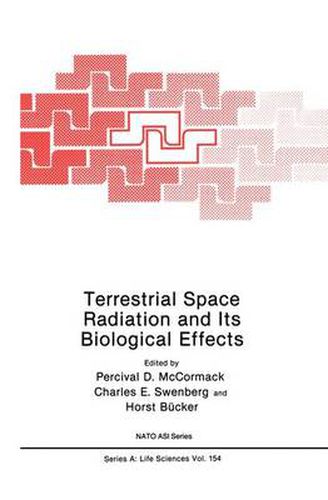Readings Newsletter
Become a Readings Member to make your shopping experience even easier.
Sign in or sign up for free!
You’re not far away from qualifying for FREE standard shipping within Australia
You’ve qualified for FREE standard shipping within Australia
The cart is loading…






This title is printed to order. This book may have been self-published. If so, we cannot guarantee the quality of the content. In the main most books will have gone through the editing process however some may not. We therefore suggest that you be aware of this before ordering this book. If in doubt check either the author or publisher’s details as we are unable to accept any returns unless they are faulty. Please contact us if you have any questions.
This volume is based on the proceedings of an Advanced Study Institute (ASI) sponsored by the North Atlantic Treaty Organization (NATO) held October 1987 in Corfu, Greece. The Institute received financial support from the National Aeronautics and Space Administration, U.S.A. Armed Forces Radiobiology Research Institute, U.S.A. Department of Energy, U.S.A. Deutsche Forschungs-und Versuchanstalt fur Luft und Raumfahrt e.v., Kaln, Germany The advent of the shuttle era is providing fresh impetus for large space ventures such as communication centers, solar power stations, astronomical observatories, orbiting factories, and space based radar. Such ventures will rely heavily on an extensive and prolonged human presence in space doing in-orbit construction, maintenance, and opera tion. Among the advantages of location in space are the near zero gravity environment, commanding location, and the reception of solar energy and astronomical signals unattenuated by the atmosphere. Central to long-term manned space missions are the problems associated with the effects of exposure to ionizing radiations on humans. Manned space mis sions in the past have encountered relatively benign radiation environ ments because of their very short duration and orbit configuration. However, crew stay time of up to a year has been recently achieved by the Soviet space program; and Mars missions lasting several years are under serious consideration.
$9.00 standard shipping within Australia
FREE standard shipping within Australia for orders over $100.00
Express & International shipping calculated at checkout
Stock availability can be subject to change without notice. We recommend calling the shop or contacting our online team to check availability of low stock items. Please see our Shopping Online page for more details.
This title is printed to order. This book may have been self-published. If so, we cannot guarantee the quality of the content. In the main most books will have gone through the editing process however some may not. We therefore suggest that you be aware of this before ordering this book. If in doubt check either the author or publisher’s details as we are unable to accept any returns unless they are faulty. Please contact us if you have any questions.
This volume is based on the proceedings of an Advanced Study Institute (ASI) sponsored by the North Atlantic Treaty Organization (NATO) held October 1987 in Corfu, Greece. The Institute received financial support from the National Aeronautics and Space Administration, U.S.A. Armed Forces Radiobiology Research Institute, U.S.A. Department of Energy, U.S.A. Deutsche Forschungs-und Versuchanstalt fur Luft und Raumfahrt e.v., Kaln, Germany The advent of the shuttle era is providing fresh impetus for large space ventures such as communication centers, solar power stations, astronomical observatories, orbiting factories, and space based radar. Such ventures will rely heavily on an extensive and prolonged human presence in space doing in-orbit construction, maintenance, and opera tion. Among the advantages of location in space are the near zero gravity environment, commanding location, and the reception of solar energy and astronomical signals unattenuated by the atmosphere. Central to long-term manned space missions are the problems associated with the effects of exposure to ionizing radiations on humans. Manned space mis sions in the past have encountered relatively benign radiation environ ments because of their very short duration and orbit configuration. However, crew stay time of up to a year has been recently achieved by the Soviet space program; and Mars missions lasting several years are under serious consideration.